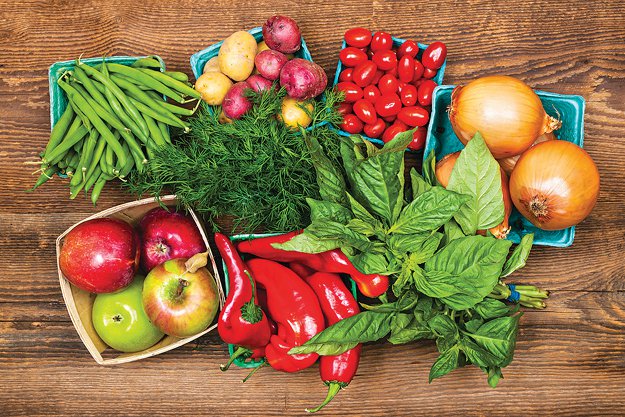
The number of people globally who are reducing or abstaining from eating meat is on the rise.
— DW Science (@dw_scitech) September 9, 2019
Just where the largest increase in vegetarians is might come as a surprise. pic.twitter.com/XzNx6nWUBb
An emerging trend
While people usually turn to vegetarian and vegan diets because of growing health, ethical, and environmental concerns, some also cite increasing meat prices as a major factor behind the trend.
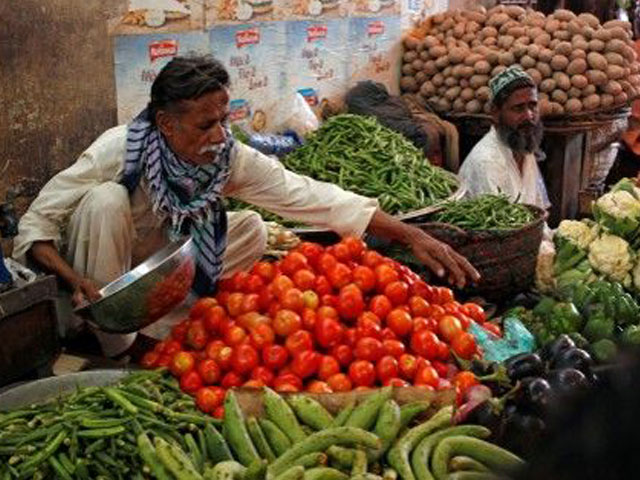
Nonetheless, the development is a subtle step closer to veganism – a concept which is often misconstrued, stereotyped, laughed upon or considered unrealistic in a culture where people have a profound love for meat. A diet based on mere grains and vegetables is linked with ‘weak’ people.
While adopting a vegetarian diet is not a new phenomenon, a small percentage of Pakistanis are also turning to a vegan lifestyle as well with perhaps not enough exposure and a gazillion challenges.
The difference between vegetarians and vegans
While vegetarians do not eat meat, they may still consume products that come from them, for instance, dairy, eggs, and honey.
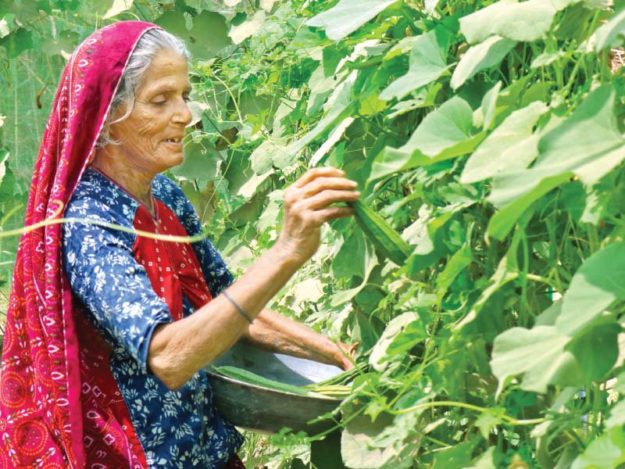
Vegans, on the other hand, do not eat or use anything that comes from an animal.
Science itself continues to experiment and research the advantages and disadvantages of going the vegan way with conflicting views emerging now and then. According to the latest study by the British Medical Journal (2019), vegans are more likely to suffer from a stroke than meat-eaters despite having fewer chances of a heart attack.
Likewise, researchers are also convinced that a vegan lifestyle can help combat climate change issues.
But where does veganism stand, in the Pakistani context?
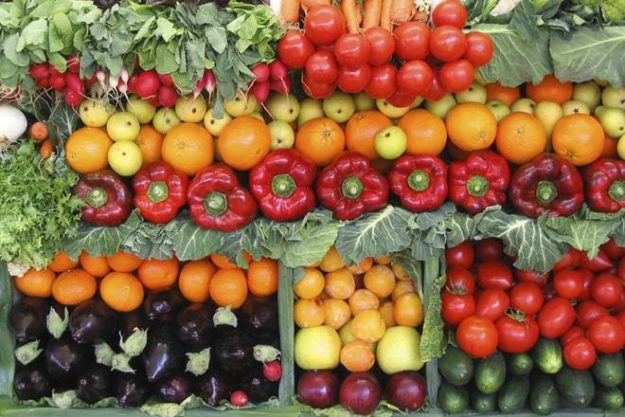
Regardless of the misconceptions and emerging theories, there still are people that have found compatibility with veganism. For some, incorporating a vegan approach to their daily lives means attaining a cleaner, healthier lifestyle; while others associate it with the greater cause of battling environmental ramifications and protecting animal rights.
26-year-old Usama Zubair who identifies as a vegan, says it’s been seven years since he transitioned to veganism for ethical reasons.
“I find it amusing that people think it’s difficult. Veganism came to me as easy as breathing. It was a challenge in the beginning but I gradually got used to it. My decision is respected wherever I go,” he said.
On the contrary, Soban Ahmed, a 30-year-old finance and investment professional, says that he was a vegan in the past but has now become a vegetarian.
“It is very difficult to be a vegan in Pakistan. There are not many options or substitutes available in the country. If not meat, there still are many dairy products used in the local cuisine. It is, therefore, difficult to maintain that lifestyle because you keep violating it without noticing.”
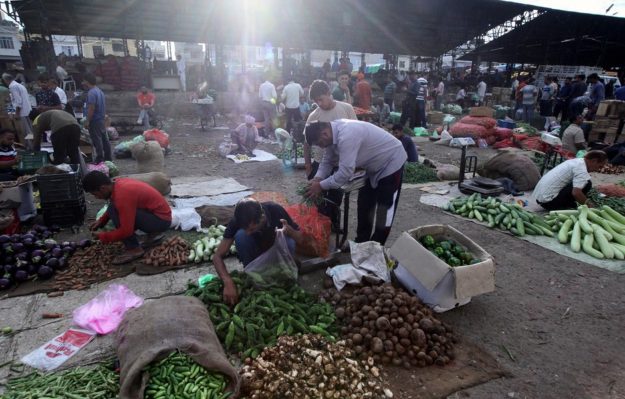 People buy vegetables at a wholesale market in Jammu on August 8, 2019, PHOTO: AFP
People buy vegetables at a wholesale market in Jammu on August 8, 2019, PHOTO: AFPSoban, however, continues to spread awareness about veganism and its benefits through his social media posts and personal interactions.
“We can promote veganism in Pakistan by educating people about its importance so that people reconsider their food choices,” he continues. “There is an environmental cost and then there are implications for our health. Besides, it is very much possible to live a healthy life with vegetables.”
The challenges
Daanish Dahraj, a prominent member of ‘Pakistan Initiative for Veganism’ – one of the very few vegan platforms in Pakistan – highlights the challenges vegans face.
“The biggest challenge is looking for validation from society as it is still a fairly new concept. We need more tolerance and acceptance from all sides for this particular way of life,” Daanish explains.
Likewise, Mazhar Nisar, another member of the group, argues that veganism is often considered an ‘abnormal’ behaviour and, in some instances, is taken as a temporary ‘fad’.
“One has to answer a volley of questions from friends and family when adopting a vegan lifestyle,” states Mazhar. “There are not many options available in restaurants for people like me. Since people love meat, vegan or vegetarian preferences are never kept in mind.”
On mentioning how to promote vegetarian and vegan cuisines in hotels and restaurants, another Pakistani vegan, who prefers anonymity, says ‘it all starts with the people.’
“The only way to encourage restaurants to include more vegetarian options is to develop a love for vegetables among people,” she says. “Meat somehow pleases the taste buds of our people but vegetables should be promoted for not just health benefits but also environmental reasons,” she adds.
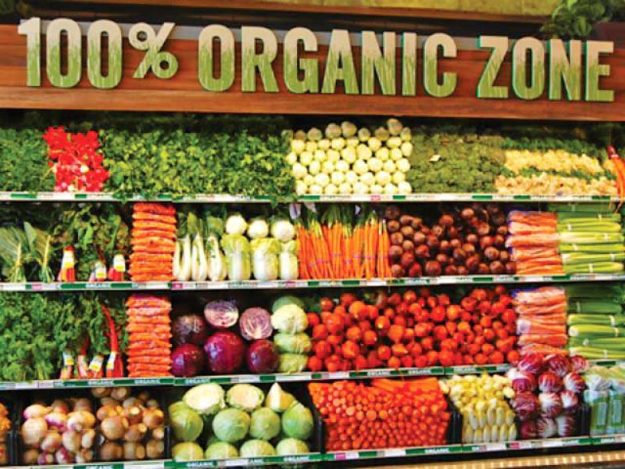 Sewani examined the business of fruit and vegetable sale and prepared a strategy to modernise this business. PHOTO: FILE
Sewani examined the business of fruit and vegetable sale and prepared a strategy to modernise this business. PHOTO: FILEAthar Ali Khan, who is a vegan for two years now and is also working on a documentary to raise awareness on this issue, asserts that addressing concerns and myths about nutrition in a meatless diet come as a big challenge.
“People are not fully aware of why we should eliminate meat from our diets and neither do they realise how animal agriculture is based on animal abuse and cruelty,” Athar explains.
“Affordability and availability of alternatives are some of the challenges vegans face in Pakistan and people must know that veganism is not a diet but a lifestyle.”
What do experts say?
Nutritionists are of the view that a meatless diet can be healthy with reduced risks of diabetes, prostate cancer and heart diseases but vegetarians and vegans should ensure they are getting enough vitamin B12, iron, zinc, and calcium.
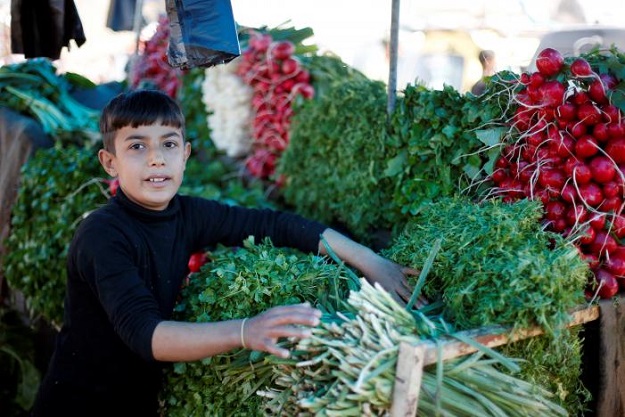
“A vegan life can be challenging in Pakistan and we must know that a vegan diet does not automatically mean a healthy one. Some products may contain high contents of fats, it is therefore important to consult a dietician and plan accordingly,” Karachi-based nutritionist Zoha Matin believes. '
“It has been observed that iron from red meat is better absorbed by the body. We encourage more plant-based diets but one must make sure to get enough nutrients, especially vitamin B12,” she says.
Another nutritionist Rabbiya Tirmizi states that avoiding meat is not bad at all as long as micro and macronutrients are balanced.
“All micro and macronutrients are chained in terms of absorption. Vitamin C is required for calcium absorption, fat is required for Vitamin D. Supplements do not always help and we need to take these nutrients through our diet as much as possible,” says Rabbiya, who has 10 years of experience in the field.
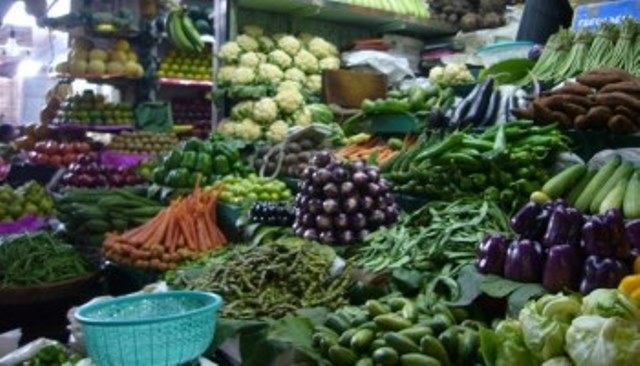
“Considering the nutritional status of an average adult in Pakistan, we are already malnourished. Incorporating nuts in the diet can help vegans in numerous ways but again other factors, such as socioeconomic status, should also be considered. We must know what we are promoting and how applicable that is in our society,” she continues.
Have something to add to the story? Share in the comments below.


1672385156-0/Andrew-Tate-(1)1672385156-0-165x106.webp)



1732012836-0/Express-Tribune-(9)1732012836-0-270x192.webp)
1732005713-0/Express-Tribune-(6)1732005713-0-270x192.webp)


1732004244-0/Untitled-design-(13)1732004244-0-270x192.webp)






COMMENTS (2)
Comments are moderated and generally will be posted if they are on-topic and not abusive.
For more information, please see our Comments FAQ